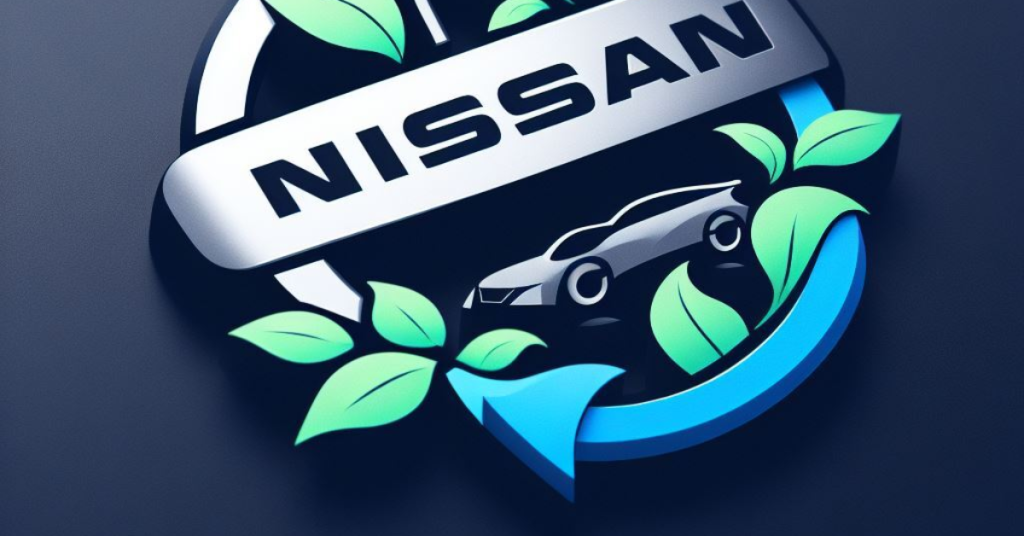Selling a used car on your own can be an intimidating process, especially when you want to get top dollar for your vehicle. However, selling privately instead of trading in or selling to a dealer has significant financial benefits. On average, you can make $1000-$5000 more when you sell your Nissan yourself compared to other options.

This comprehensive guide will provide you with unbeatable tips to sell your Nissan quickly and for the maximum price in 2023. Whether you have a popular model like the Altima, Maxima, Sentra, or Rogue, or a specialty model like the GT-R or Z, these strategies will help you successfully navigate the private party market.
From timing your sale appropriately and setting the right price, to preparing the car, marketing it effectively, and negotiating with buyers, you will learn how to optimize each step of the sales process. With the right approach, you can minimize the hassle and maximize your profit when selling your Nissan.
Follow these unbeatable tips to take control of the selling process, attract qualified buyers who compete for your vehicle, and master the art of negotiation to get top dollar for your car.
Why Sell Your Nissan
There are many good reasons to sell your current Nissan:
- Upgrading to a newer model – If you want a newer Nissan with the latest technology and features, selling your current vehicle can help offset the cost.
- Changing needs – Maybe you need more cargo room or something better suited to a growing family. Selling your Nissan can provide cash for a different type of vehicle.
- Relocating – If you are moving to a new city, you may want to sell your Nissan rather than pay to transport it.
- Reducing expenses – If your car payment, insurance, registration, or maintenance costs are too high, you may want to downgrade to a cheaper vehicle.
- Limited usage – If you drive very few miles now or work from home more, selling your Nissan may make more sense than keeping it.
The main financial incentive for selling privately is capturing more value compared to trading in your car or selling to a dealer. On average, private party sale prices are 7-15% higher.
With proper preparation and marketing, you can maximize your sale price and walk away with thousands more dollars in your pocket.
Understanding Vehicle Depreciation
All vehicles lose value over time through the depreciation process. As soon as a new car is driven off the lot, it drops 20-30% in value. With each subsequent year, the car loses about 10-20% annually.
Nissans tend to hold their value reasonably well, with some models having better than average resale value. However, factors like mileage, condition, demand, and options impact depreciation substantially.
Generally, the best time to sell a used Nissan is when it still retains substantial value, but before major repairs are required. Selling at the optimal time allows you to maximize profit.
Most Nissans depreciate on this general timeline:
- 1-2 years – Still retains 60-75% of new MSRP
- 3-4 years – 50-65% of original value
- 5-6 years – 40-55% of original MSRP
- 7-10 years – 30-45% depending on mileage and condition
Understanding how quickly your particular Nissan model loses value can help determine the ideal time to sell and expected sale price range.
Best Time to Sell Your Nissan
Targeting the optimal window to sell your Nissan is important to maximize the sale price. Consider these tips on timing:
- Mileage – Once a Nissan crosses 100k-125k miles, its value drops more rapidly. Sell before reaching this range.
- Condition – A Nissan in excellent shape has the highest resale value. Make repairs before selling.
- Year – New model arrivals lower demand for previous years. Avoid selling in the final model year of generation.
- Seasons – Prices peak when demand is highest from spring through early fall.
- Market trends – Sell when used car prices are elevated and your model is in high demand.
- Life changes – Major events like moving or adding a new family member impact needs.
By paying attention to these timing factors, you can optimize when to put your Nissan on the market.
Pre-Sale Preparations
Proper preparation is crucial to accelerate the sale process and achieve top dollar. Here are important steps to take:
- Clean inside and out – A spotless Nissan attracts more buyers. Make it sparkle!
- Check fluids, belts, hoses – Ensure they are topped off and in good condition.
- Replace worn items – New wiper blades, air filters make a good impression.
- Inspect and fix minor issues – Address dents, scratches, burned out lights immediately.
- Touch up paint – Disguise blemishes with matching paint pens.
- Check tire condition – Buyers look at tread depth and wear patterns.
- Test drive – Drive your Nissan to spot any problems to address.
- Service if needed – Fresh oil, filters, brakes signal a well-cared for vehicle.
- Detail interior – Shampoo carpets, seats and remove stains, odors completely.
Proper preparation signals a well-maintained vehicle, boosting perceived value. Allow enough time to get your Nissan looking its best before listing it for sale.
Cleaning and Detailing
A spotless, pristine vehicle attracts more buyers. Follow these professional cleaning tips:
- Wash and wax exterior – Remove all dirt with soap and water, then apply wax for shine.
- Clean wheels, tires, wheel wells – Use a separate brush and all-purpose cleaner for this grimy area.
- Clean inside windows – Use glass cleaner and lint-free cloths for streak-free windows.
- Vacuum interior thoroughly – Get into crevices, under seats to remove all debris.
- Shampoo floor mats – Remove and clean with carpet shampoo then allow to dry completely.
- Use upholstery cleaner on seats – Spot clean any stains, then clean entire surfaces.
- Remove odors – Air out vehicle, use odor eliminators to freshen interior.
- Clean trunk – Remove spare tire and mats to clean hidden areas.
- Use touch up paint – Carefully disguise any paint chips and scratches.
- Polish chrome trim – Restore shine to dull trim pieces.
- Clean engine bay – Remove grime and dust from external engine surfaces.
Budget extra time and money for professional detailing if needed. A showroom-quality clean Nissan can yield top dollar.
Minor Repairs for Maximum Value
Making select minor repairs can significantly boost your Nissan’s value. Consider addressing:
- Minor dents and scratches – Use touch up paint to disguise imperfections.
- Burned out light bulbs – Replace headlights, brake lights, turn signals with new bulbs.
- Windshield chips – Repair small chips so they don’t spread.
- Worn wiper blades – Install fresh blades that wipe cleanly.
- Engine leaks – Identify oil, coolant leaks and repair as needed.
- Strange noises – Diagnose any clunks, squeaks or vibrations and fix cause.
- Missing trim – Replace any body trim that’s cracked or missing.
- Accessories issues – Ensurestereos, power windows work properly.
- Windshield washer fluid – Fill tank with high quality fluid.
- Cracked glass – Replace any cracked mirror or light lenses.
- Tire condition – If necessary, mount a matched set of new tires.
Fixing these minor issues is inexpensive compared to the boost in sale price you can achieve.
Pricing Your Nissan Competitively
Choosing the right asking price is one of the most important decisions when selling your Nissan. Set your price by:
- Checking current market value through online valuation tools and local listings
- Adjusting for your vehicle’s exact mileage, condition, and options
- Comparing prices of similar vehicles listed in your local market
- Factoring in demand for your particular year, make and model
- Considering any major maintenance done and related costs
- Researching the sale prices of similar Nissans recently sold in your area
- Leaving some room for negotiation, typically 5-10% below your target sale price
Taking the time to understand the market for your specific Nissan will pay off with a sale at or above fair market value.
Online Valuation Tools
These websites provide free instant estimates of your Nissan’s value:
- Kelley Blue Book (KBB.com) – Offers trade-in, private party, and dealer retail values. Adjusts for your zip code, options, and condition.
- NADAGuides (NADAguides.com) – Values based on local market conditions and comparable sales data. Can customized based on specs.
- Edmunds (Edmunds.com) – Calculates “instant cash offer” and market value for your exact Nissan. Easy to adjust for options.
- Cars.com – Provides price range for your Nissan’s year, make, model and mileage. Lets you enter conditions and options.
Always check multiple valuation sources for the most accurate estimate. Verify options and condition ratings match yours. Value estimates are a useful starting point when pricing your Nissan to sell.
Documenting Service History
Preserving service records and receipts boosts your Nissan’s value. Buyers like seeing evidence of:
- Timely oil changes
- Routine maintenance
- Major repairs
- New tires or battery
- Mileage at each service
Make copies of all records to include with the sale. Missing maintenance logs can negatively impact value. Buyers may request a pre-purchase inspection to verify the mechanical condition.
If selling privately, introduce interested buyers to your preferred Nissan mechanic. The mechanic can validate service history and overall condition. This extra transparency can build trust and achieve your asking price.
Taking Attractive Photos
Great photos attract more buyers and generate faster sales. Follow these tips for top quality photos:
- Clean the vehicle – Wash and detail inside and out before starting.
- Park on a clean, uncluttered surface – Concrete or asphalt is better than grass or gravel.
- Choose a location with a clean background – Avoid cluttered areas.
- Shoot in daylight – Position the car facing the sun for ample lighting. Overcast days also work.
- Turn the wheels – Angle the wheels for a more dynamic stance.
- Open all doors – Get shots of the interior from multiple angles.
- Get exterior shots from all sides – Including front, back, both sides and corners.
- Focus on any standout features – Especially rare options or unique details.
- Take 20+ photos – Capture the undercarriage, seats, instrument panel, cargo area, wheels, badging, and technology.
- Edit photos – Correct brightness, contrast, and cropping. Remove distracting background objects if possible.
Great photos show buyers your Nissan’s condition and features. They can make the difference between attracting interested buyers or not.
Crafting a Captivating Description
Writing a compelling, benefit-focused description is essential to selling your Nissan quickly. Include:
- Year, make, model name and trim level
- Mileage
- Exterior and interior colors
- Key options – navigation, sunroof, leather seats, etc.
- Maintenance history and current mechanical condition
- Reason for selling
- Your contact information
- Motivating benefits like “extremely clean”, “drives like new”, “pristine condition”
- Call to action – “Serious buyers only, call today to schedule a test drive.”
Be honest about any flaws. Keep language positive to build excitement. Mention upgrades, preventative maintenance done.
The right description helps buyers quickly decide if your Nissan meets their needs, compelling them to contact you.
Choosing the Right Selling Platforms
Listing your Nissan across multiple platforms is essential to maximize visibility and achieve quick sales:
Online Classifieds
- Craigslist – Free listings with local reach. Can post detailed descriptions and photos.
- Facebook Marketplace – Leverage existing network of friends and local buyers.
- OfferUp – Popular peer-to-peer marketplace app. Built-in messaging and buyer reviews.
Used Car Sites
- Autotrader – Largest used car site. $50+ for premium ads with maximum exposure.
- Cars.com – $50+ for featured listings. Broad reach and search tools.
- CarGurus – Free listing. Gets traffic from their national vehicle search engine.
- AutoTempest – Searches multiple sites including Craiglist, eBay Motors, Cars.com and more.
Cast a wide net by listing your Nissan on platforms where buyers are actively searching. Monitor listing views and contacts to see which generate the most interest.
Online Listings Tips
Follow these tips to create effective listings that attract buyers:
- Use a detailed, honest title – For example, “2011 Nissan Maxima SV Sedan, 86k Miles”.
- Add 20+ high quality photos – Show every angle, feature and imperfections.
- Thoroughly describe condition – Note new parts and maintenance history. Disclose any defects.
- Bold key specs – Mileage, transmission type, engine size, and options stand out when bolded.
- List motivating features – “Leather seats”, “navigation system”, “brand new tires”.
- Share maintenance records – Link to online folder of repair invoices, and service records.
- Renew and repost frequently – Bump listings regularly so they show at the top of search results.
Optimized listings build confidence and bring motivated buyers to you quickly.
Utilizing Social Media
Promoting your Nissan for sale on social media expands your reach exponentially:
- Create a Facebook post – Write compelling details and reasons to buy. Use hashtags like #NissanForSale.
- Share on Twitter – Tweet sale details and listing links to local followers.
- Post on Nextdoor – Hyperlocal app connects with neighbors. Gets the word out close to home.
- List in Facebook Groups – Join regional sales groups and buyer-focused clubs on Facebook.
- Instagram – Post attractive photos with sale details on relevant hashtags.
- LinkedIn – Inform your professional network about the private sale.
- YouTube – Create a video walkaround tour showing your Nissan’s features.
Leveraging your existing social network builds trust and qualified leads. Encourage friends and followers to share your sale posts as well.
Considering Offline Listings
Don’t overlook offline options when marketing your Nissan:
- Classifieds in local newspapers – Target publications popular with used car buyers.
- Bulletin boards – Post eye-catching fliers at supermarkets, community centers, and colleges.
- Auto Trader magazine – Monthly publication with used listings. Distributed nationwide.
- Dealership forums – Some allow private party ads on their community boards.
- Word of mouth – Tell everyone you know locally that you have a Nissan for sale.
- Trade magazines/apps – Some niche auto titles and apps accept private party ads.
- Local mailers – Send postcards or brochures to nearby houses announcing the private sale.
While online exposure is ideal, cast a wide net with offline channels as well.
Networking with Potential Buyers
Attending events and networking in relevant communities generates promising buyer leads:
- Nissan enthusiast gatherings – Chat about your car and spread the word
- Local car shows and meets – Display your vehicle, mention it’s for sale
- Community centers – Meet neighbors who may be interested
- Colleges and young alumni groups – Good demographic for used cars
- Social and professional groups – Casually bring up you’re selling to peers
- Athletic clubs and gyms – Build rapport then share sale information
- Places of worship – Discreetly advertise to your religious community
- Local auto parts stores – Patrons likely own similar vehicles
- Service departments – Notify dealership staff servicing your make
Networking face-to-face develops trust and qualified referrals. Identify social settings frequented by potential buyers.
Communication with Buyers
Responding promptly and professionally to buyer inquiries is crucial. Follow these communication tips:
- Reply quickly – Answer emails and voicemails within a few hours during the day. Alert buyers when you cannot respond right away.
- Answer questions fully – Provide detailed vehicle history and maintenance records. Build trust through transparency.
- Confirm appointments – Verify day before any showings, test drives, inspections, etc.
- Personalize correspondence – Use first names, and speak conversationally to establish rapport.
- Share contact preferences – Specify if you prefer email, texts, or phone calls. Accommodate buyer preferences also.
- Negotiate logically – Avoid emotional appeals. Calmly present facts supporting your pricing and terms.
- Show enthusiasm about your vehicle – Express pride in ownership to build value perception.
Clear communication converts more contacts into serious buyers and higher offers.
Arranging Viewings Safely
When meeting potential buyers:
- Meet in a public place – Busy parking lot, seller’s home only if others are present. Avoid secluded areas.
- Schedule daylight hours – Morning or early afternoon is safest. Avoid evenings and nights.
- Share schedule details – Inform a friend where you are meeting and when you expect to return.
- Take a friend – An extra companion provides safety and a second perspective.
- Protect personal information – Do not share your address or other sensitive details unless purchasing.
- Assess buyer – Trust your instincts if you feel uneasy. Reschedule or end meeting if concerned.
- Test technology – Have keys, locks, electronics ready to demonstrate features.
- Bring documents – Service records, title information help buyers evaluate condition.
With proper precautions, you can safely accommodate viewing requests from qualified buyers.
Conducting Test Drives
Allowing test drives with serious buyers is expected. Take these precautions:
- Photocopy buyer’s driver’s license – Also take a photo on your phone prior to drive.
- Accompany buyers – Do not allow unaccompanied test drives. Go along for the ride.
- Plan route – Drive locally on familiar roads in 15-20 minute loop. Avoid highways or high speeds.
- Set expectations – Agree on maximum speed and route boundaries to follow. Clarify restrictions before departing.
- Disable electronic devices – Ask buyer to turn off phone and avoid distractions.
- Assess driving skill – If uncomfortable, end drive early. Return home immediately if necessary.
- Watch for warning signs – Beware if buyer detours from planned route or ignores expectations.
- Have next steps ready – Be prepared to discuss price and sale terms when returning.
Test drives create buying momentum. Take steps to keep drives short, controlled and focused on assessing vehicle condition.
Negotiating the Price
Prepare to negotiate skillfully with buyers on price:
- Research thoroughly – Know the objective market value and price similarly equipped vehicles.
- Build perceived value – Highlight service history, upgrades made. Share compliments received.
- Anticipate offers – Many buyers may offer 10-15% less than asking price initially.
- Remain flexible – Willingness to reduce price modestly shows reasonableness.
- Make small concessions slowly – Decline initial lowball offers, then compromise in increments.
- Sweeten with extras – Offer to include new tires, recent tune-up to justify price.
- Hold your bottom line – Walk away from offers well below your minimum acceptable price.
- Set deadlines – Create urgency to accept a fair offer by end of day/weekend.
- Stay calm, friendly – Defuse tension. Don’t take low offers personally.
With the right strategy, you can negotiate successfully to maximize your Nissan’s sale price.
Avoiding Common Negotiation Mistakes
When negotiating, beware of these common errors:
- Making the first offer – Let the buyer state their price first.
- Answering questions too quickly – Pause to consider responses carefully.
- Making large concessions upfront – Start with small, incremental price drops.
- Getting emotional or defensive – Stay calm and friendly, even with lowball offers.
- Not having supporting facts – Cite specs, options, and market value to justify pricing.
- Discussing payments – Stick to total price, avoid monthly payment talk.
- Accepting first “final” offer – Negotiate until both parties are satisfied.
- Neglecting paperwork – Vet buyers carefully, confirm financing is secured.
Stay strategic in negotiations. Don’t make concessions too quickly or deviate from your researched pricing.
Finalizing the Sale
Follow best practices when closing the sale:
- Verify funds – Do not release the car until payment has fully cleared your account.
- Sign over title – Ensure paperwork is complete and legally transfers ownership.
- Provide copies – Supply buyer with copies of title docs and maintenance records.
- Remove plates – Take your license plates off the car before buyer drives away.
- Keep sale records – Hold onto plate receipt and bill of sale for tax purposes.
- Collect buyer info – Get their name, phone, address in case any post-sale issues arise.
- Review disclosures – Ensure “as-is” language protects you from liability claims later.
- Exchange contacts – Share phone numbers in case questions come up afterwards.
Follow correct protocols to finalize the transaction securely and relieve liability. Celebrate maximizing your Nissan’s value through a private sale!
Handling Payment Securely
Arrange payment carefully to avoid security issues:
- Accept official bank check – Verified funds are lowest risk. Beware personal checks.
- Ask for electronic payment – Services like Zelle offer convenience with bank-level security.
- Meet at buyer’s bank – Witness the cashier’s check being printed and verified on the spot.
- Avoid cash transactions – Too risky for large sums. Accept credit card via secure processor if possible.
- Wait for funds to fully clear – Don’t release keys and title until payment is validated in your account.
- Watch for overpayments – Scammers may send extra funds and request refund. Never return any overages.
- Meet in public – Never go to the buyer’s home or remote areas to collect payment.
- Bring companion for security – Extra person can document exchange and provide safety backup.
Secure, verified payment protects against fraudulent buyers and post-sale payment disputes.
Completing Sale Documents
Transferring ownership legally requires properly completing:
- Title – Fill out seller’s portion fully. Sign over the title in front of buyer or notary.
- Bill of sale – Documents purchase details including VIN, price, date. Both parties sign.
- Registration – Sign over the registration card. Provide past registration paperwork as well.
- Smog certificate – If required in your state, provide valid emissions test results to buyer.
- Release of interest – Proves any liens on the vehicle have been cleared.
- Power of attorney – If selling on behalf of someone else, carry proof of authority.
- As-is document – Details vehicle condition and waives seller liability claims. Buyer signs.
Filing correct paperwork protects you and makes transferring the title smooth for the buyer. Never skimp on documentation.
Post-Sale Responsibilities
Finalize these last details after selling your Nissan:
- Inform your insurance company – Remove vehicle from policy once sale completes. Receive any refund due.
- Notify lenders – If you owed money, pay off any lien and have title released.
- Cancel registrations – File notice of sale with the DMV. Terminate recurring auto registration payments.
- Remove from toll programs and apps – Suspend any linked toll passes to avoid charges after sale.
- Reset technology – Perform factory reset of audio and navigation systems to wipe personal data.
- Close listings – Delete all online and offline sale listings promptly.
- Update social media – Remove sold vehicle from profiles.
- File taxes – Report sale amount and capital gains/losses appropriately at tax time.
Tying up loose ends helps you move on hassle-free post-sale.
Dealing with Post-Sale Inquiries
You may receive calls or emails from buyers even after the sale:
- Address legitimate concerns – If failure occurs shortly after sale, you may provide goodwill refund. Not required.
- Clarify as-is status – Politely reiterate vehicle was sold as-is if contacted about repairs.
- Refer to paperwork – Point to condition disclosures and liability releases signed.
- Cut off contact – If buyer gets threatening or abusive, block their number and stop responding.
- Consult legal counsel – If sued, engage a lawyer immediately to protect yourself.
- Report fraud – If a scam artist contacts you, alert website administrators and authorities.
While rarely an issue, properly addressing after-sale communications protects you.
Reflecting on the Selling Process
After your Nissan sale concludes:
- Review successes – Note tactics that generated strong buyer response and good offers.
- Identify missteps – Learn from any mistakes made in photos, pricing, documentation, etc.
- Remember lessons – Apply experience negotiating and interacting with buyers to future sales.
- Strengthen weak points – If you struggled with a particular step, get advice to improve.
- Pat yourself on the back – Appreciate the time and effort it took to maximize your sale price.
- Invest wisely – Put earnings from the sale to good use!
Selling privately takes effort but pays off in thousands extra dollars. Use the experience to perfect your selling approach for even better results next time.
Planning for Your Next Vehicle
Now is the ideal time to find your next car. With the private sale proceeds in hand:
- Research vehicles – Explore models that fit your needs and budget. Compare prices locally.
- Get pre-approved financing – Shop lenders to find the best loan rates for your situation.
- Sell first, buy second – Avoid being pressured into a purchase before your sale completes.
- Inspect carefully – Have any potential purchase thoroughly checked by your trusted mechanic.
- Negotiate price – Use sale experience to negotiate your strongest deal as a buyer.
- Limit extras – Resist pressure to add unnecessary extended warranties or accessories.
- Review paperwork – Read all financing and purchase documents carefully before signing.
- Insure before driving away – Already have new policy set up and card in hand.
Leverage your savvy selling experience to score the perfect next car at a great price!
Legal Considerations When Selling
These legal factors protect you during a private sale:
- Title – Only sell a vehicle for which you hold the title. Never sell a car with a lien.
- Odometer disclosure – Federal law requires declaring mileage at sale. Do not alter.
- As-is condition – Require buyer to sign document acknowledging used vehicle condition.
- State regulations – Research your state’s specific rules on private party sales.
- Sales contract – Detail purchase terms, price, condition, and buyer/seller info in a signed contract.
- Insurance – Maintain insurance until sale is complete to protect test drives.
- Warranties – Clarify remaining factory warranty coverage, if any. Disclose if expires with ownership change.
- Safety issues – Disclose any defects or damage that could impact safe operation.
Understanding the legal aspects reduces liability exposure so you can sell with confidence.
Fraud Prevention Tips
Avoid scams when selling privately:
- Verify cashier’s checks – Ensure sufficient funds before releasing car.
- Do not share personal info – Keep details like SSN private until purchase finalizes.
- Meet only in public – Never show vehicle alone at your home or remote places.
- Video record handoffs – Use phone to document interactions in case of disputes.
- Email from legitimate accounts – Check domains on all correspondence.
- Require psychical ID – View and photocopy driver’s license of prospective buyers.
- Research suspicious requests – Many scams have common patterns to watch for.
- Never agree to ship – Only transact in person once full payment clears.
Stay vigilant for signs of fraud. Trust your instincts – if something seems questionable, stop engaging.
Understanding Tax Implications
If you sell a personal vehicle for profit, tax rules apply:
- Report sale price as taxable income if it exceeds original purchase cost
- Calculate capital gains tax owed – Currently 15% federally for most filers, plus state taxes
- Claim original purchase price and improvements as cost basis if sold at a loss
- Keep detailed records – Bill of sale, loan payoff amounts, sale expenses
- Report income from private party sale as miscellaneous income
- Consider consulting a tax professional for guidance
- If sold at a loss, no tax is due but losses can offset other capital gains
Understanding the basics helps estimate taxes owed or deductions allowed on your vehicle sale.
Advantages of Selling Privately
Maximize your profit by selling without a dealership:
- Earn more money – Cut out the middleman and keep thousands extra yourself.
- Control process – Choose where to list, set own price and handle showings.
- Sell on your timeline – Decide exactly when the time is right to put your car on the market.
- Utilize online platforms – Leverage sites like Craigslist and Facebook to maximize exposure.
- Avoid fees – No commission or documentation charges that cut into your bottom line.
- Interact directly with buyers – Establish rapport without salesperson involvement.
- Freedom to negotiate – Use expertise to strategically target best possible price.
Selling privately requires effort but nets substantially more money in your pocket.
Considering Trade-Ins
Trading in your car when buying another involves convenience but financial compromise. Consider:
- Limited negotiation – Dealerships set trade values, leaving little room for discussion.
- Lower value – Expect to lose $1000 or more versus selling yourself.
- Immediate sale – Trade-in does provide faster liquidation if needed.
- Tax benefits – Trade value reduces sales tax on new purchase in most states.
- Incentives – Manufacturer deals may have bonus for trade-in customers.
- Two transactions – Complexity of buying and selling simultaneously. More room for errors.
- Dealer profit – Your old car will likely be marked up significantly for resale after trade.
Compare trade-in vs. private sale value quotes to determine the better financial path for your situation.
Analyzing Dealer Sale Option
Selling your car directly to a dealership provides convenience but less profit:
Pros
- Speed and simplicity – Complete the transaction in one quick visit.
- No advertising needed – Dealers take care of reselling your car.
- Pay off auto loan – Dealer may settle remaining loan balance directly.
Cons
- Lower profit – Expect to lose $500-$2000 versus selling privately.
- No negotiation – Dealers offer fixed pricing with little room for discussion.
- More fees – Administrative and documentation charges may apply.
- Transportation needed – Unlike a trade, you must bring car to the dealership.
Analyze dealer offers, but expect to earn substantially more selling independently.
Exploring Car Auctions
Auctioning your Nissan taps into a wholesale market hungry for used vehicle inventory. Consider:
Pros
- Exposure to professional buyers – Dealers, wholesalers looking for auction deals.
- Efficient sale process – Auction facilitates viewing, bidding, payment.
- Possible to earn above-average private party price in competitive bidding.
Cons
- May sell for below private market value – Depends on auction demand.
- Commission fees – Auction house charges seller percentages. Reduce net profit.
- Limited control – Can set reserve price but cannot control final hammer price.
- Delivery required – Must transport vehicle to auction location on scheduled day.
Auctions provide exposure but limit control over final selling price. Weigh against private sale options.
Innovative Selling Platforms
Newer third-party services simplify private party car sales:
- Shift – Sell your car to Shift, then they remarket. Convenience like a dealer trade-in but they buy outright.
- Vroom – Sell directly to Vroom. Vehicle gets appraised, they provide an offer, and handle pick up.
- Carvana – Like Vroom, Carvana buys directly from individuals through their website. Schedule free appraisal.
- Peddle – Sell outright to Peddle. Receive an offer, ship your car to them, and payment is direct deposited.
- Autoniq – Local service that facilitates private party sales through their website and stores. Charge seller fees.
- Craigslist “Sell Your Car” Option – Craigslist now partners with Autoniq to connect local buyers and sellers.
These services add convenience but reduce profit versus independent private party sales.
Utilizing Vehicle History Reports
Providing a vehicle history report reassures buyers and builds trust. Options:
- Carfax – Most recognized provider of vehicle history reports. Can buy individual report for around $40.
- AutoCheck – Affordable vehicle history reports from Experian. Typically under $25.
- NMVTIS – Cheaper online vehicle history option at around $15-$20 per report.
- Service Records – Compile your own maintenance logs, receipts and documents to share with buyers.
Key details provided include odometer readings, title checks, accident indicators, ownership history and maintenance records.
Being transparent builds credibility. Share report with serious buyers to instill confidence.
Importance of Honest Disclosure
Disclosing known defects demonstrates integrity and reduces liability:
- Note imperfections like scratches, dents, and stained upholstery in listings.
- Show wear and tear clearly in photos. Never hide or downplay damage.
- Highlight any current mechanical issues upfront.
- Maintain detailed maintenance and repair invoices to share with buyers.
- Mention major prior accidents reported on vehicle history documents.
- If modifications like lift kits were done, ensure the buyer understands any impacts.
- Be conservative when assessing condition ratings. Don’t inflate to “excellent” if only “good”.
- Answer questions from buyers fully and truthfully.
- Disclose anything you would want to know as a buyer.
Honest representations help match your Nissan with buyers who appreciate its positives and accept any flaws. This reduces headaches and disputes down the road.
Enhancing Vehicle Appeal
Make simple improvements for maximum appeal when buyers see your Nissan:
- Clean inside and out – A spotless car attracts buyers.
- Deodorize interior – Eliminate any odors from pets, smoke, or spills.
- Wax exterior – Buff paint to a glossy shine that looks great.
- Replace floor mats – Clean carpets and add fresh mats.
- Install new wiper blades – Ensure they wipe cleanly during test drives.
- Touch-up paint – Carefully reduce the appearance of nicks and scratches.
- Replace Air Filter – A clean filter shows you prioritize maintenance.
- Detail the engine – Remove exterior grime so it looks crisp.
- Fix minor issues – Address sticky buttons, blown speakers, and loose trim.
- Remove clutter – Take out old cups, bags, and receipts from the interior.
With a few quick fixes, you can boost your Nissan’s curb appeal and desirability substantially.
Customizing Your Sales Approach
When selling privately, highlight the factors your target buyers will appreciate most:
- Families – Emphasize safety, roominess, and convenience features.
- Commuters – Play up great fuel economy and reliability for frequent drivers.
- Off-roaders – Showcase specialized packages. Lifted suspension and skid plates are big pluses.
- Tuners/enthusiasts – Focus on performance specs and aftermarket upgrades you’ve added.
- Tech lovers – Show off the infotainment system, advanced driver aids and connectivity.
- Luxury seekers – Spotlight leather, wood trim, heated seats and plush options.
- Outdoorsy types – Note cargo space for gear, and pet-friendly features.
Aligning your sales approach maximizes appeal to buyers who will pay top dollar for the specialized characteristics they value most.
Evaluating Market Trends
Study used vehicle market conditions to optimize timing and pricing:
- Used prices – Are pre-owned vehicles commanding premium pricing currently? Is demand outpacing supply? Capitalize on high valuation trends to maximize sales price.
- New car inventories – When new car supplies are tight, buyers may opt for used ones. Low new car availability can improve demand for your Nissan.
- Gas prices – Rising fuel costs make high mpg models more appealing. High gas prices can boost interest.
- Interest rates – Low-interest rates on used car loans stimulate buying activity. High rates discourage shoppers.
- Economy – Strong consumer confidence and discretionary income increases willingness to spend on vehicles. A weakening economy discourages big purchases.
Staying informed helps set competitive pricing and plan your sale timing to align with ideal market conditions.
Exploring Seasonal Demand
Vehicle sales often follow seasonal patterns. Typically:
- Spring – Warmer weather increases shopping. Tax refund season puts extra money in buyer’s pockets.
- Summer – High demand from families prior to the new school year and college students looking for vehicles.
- Fall – Fewer buyers are distracted by vacations or holidays. Serious buyers focus on purchasing.
- Winter – Slowest sales period due to holiday distractions and unwillingness to purchase in snowy conditions.
Other Influences
- Post-pandemic demand surges as life normalizes.
- Government stimulus programs may periodically spike buyer interest.
Leveraging peak seasons and increased shopper activity works in your favor for attracting buyers willing to pay top dollar.
Leveraging Local Market Conditions
Factors specific to your region can impact potential buyer pool and sale price:
- Climate – 4WD and AWD models sell for more in mountainous or winter weather regions. Sportscars and convertibles command premium pricing in warmer climates.
- Fuel costs – High local gas prices make fuel sippers like hybrids and diesel more desirable.
- Community needs – Families favor larger vehicles and minivans in suburban areas. Urban buyers gravitate toward smaller cars for street parking.
- Local events/attractions – Sell family-friendly models near amusement parks. Pitch sportscars and luxury vehicles near racetracks or upscale casinos.
- Military communities – American models often appeal most to patriotic buyers on bases and surrounding towns.
- College towns – Students and young alumni seek affordable, techy sedans and hatchbacks.
Understanding your market helps tailor your Nissan’s appeal and achieve maximum interest from area buyers.
Utilizing Online Advertising
Small investments in targeted online ads extend your Nissan listing’s reach:
- Facebook Ads – Select geographic and demographic targeting to reach relevant buyers.
- Instagram Promoted Posts – Boost organic posts sharing your sale details to get in front of local followers and vehicular hashtags.
- Google Ads – Display your listing to searchers looking for your Nissan’s make, model and year. Highly targeted by geography.
- Craigslist Advertising – For as little as $5, amplify visibility beyond regular listings.
- LinkedIn Sponsored Updates – Share sale posts with your professional connections.
- Nextdoor Ads – Microtarget by neighborhood to alert local buyers.
- CarGurus Listing Boost – Pay per click pricing structures make entry level advertising affordable.
Minor ad spend greatly expands visibility with serious buyers for any budget.
Measuring Advertising Effectiveness
Gauge return on investment from online advertising by tracking:
- Clicks – How many clicked your ad to visit the listing or seller website?
- Engagement – Monitor social media likes, shares, and comments generated.
- Messages – Did your ad directly result in buyer inquiries?
- Views – For Craigslist, count ad viewers relative to free listing views.
- Referral Source – On listing and seller sites, check traffic sources to identify conversions driven specifically by the ad.
- Phone Calls – Use a unique phone number in each ad source to measure call volume by channel.
- Cost Per Result – Divide ad spend by positive outcomes like contacts and inquiries to calculate ROI.
Analyzing metrics helps refine targeting and messaging. Double down on high performing platforms or reduce low-converting advertising.
Revising Your Selling Strategy
If your Nissan attracts insufficient buyer response:
- Drop the price – Reduce closer to sold comparables if overpriced.
- Add incentives – Consider offering extras like new tires or extended warranty coverage.
- Refresh ad copy – Update listings with new photos and sales-focused descriptions.
- Relist more frequently – Bump stale ads down rankings. Repost to regain visibility.
- Update social promotions – Share new content and pictures to restart interest.
- Check analytics – Review traffic sources and fine tune your best lead channels.
- Pause poor performers – Identify and cut ineffective advertising outlets.
- Highlight new features – Call out recent maintenance or reconditioning.
- Wait for buying surges – Time price drops and relistings to coincide with seasonal peaks or upcoming tax refunds and incentives.
Adapting your approach maximizes results. Remain flexible until you connect with serious buyers.
Learning from Common Seller Errors
Avoid these mistakes that could cost you money:
- Overpricing far above market value
- Neglecting minor repairs and cosmetic improvements
- Being inflexible on price – refusal to negotiate reasonably
- Not screening buyers thoroughly – failing to verify funds or identity
-Skipping a pre-purchase inspection
- Rushing the sale or neglecting paperwork
- Letting emotions impact decisions
- Accepting payments other than verified cashier’s check or electronic transfer
- Failing to properly transfer title and notify the DMV
- Trusting buyers to register the car themselves
- Providing limited photos and vague descriptions
- Paying for unnecessary reconditioning better left to the buyer
Learn from other seller’s missteps. Stick to proven recommendations to maximize your Nissan’s sales price and avoid hassles.
Interpreting Buyer Feedback
Notice buyer reactions to appropriately adjust your sales approach:
- Price complaints = Your asking price is likely higher than the market. Research current values and adjust.
- Condition concerns = Ensure details in listings and photos accurately showcase wear and tear. Highlight reconditioning done.
- Feature questions = Clarify what features are included. Call out options and upgrades.
- Maintenance requests = Compile service records to share. Have vehicle inspected to satisfy inquiries.
- Test drive feedback = Make repairs for any issues noticed.
- Few showings = Refresh listings with new details if getting little engagement. Lower price if needed to increase interest.
Listen carefully to buyer sentiments. Tweaking your strategy based on their feedback can prompt more serious offers.
Adjusting Your Price Strategically
If your Nissan won’t sell after repeated attempts, strategically adjust:
- Reduce incrementally – Try lowering your price in small steps until buyer response improves. Avoid panic price-slashing.
- Review comparables – Ensure you are priced competitively within local market rates for similar vehicles. Go mid-range versus lowest/highest.
- Highlight upgrades – Emphasize improvements and maintenance justifying your adjusted yet fair price.
- Offer extras – Consider including new tires, upcoming service needs, warranty to create added value perception.
- Neutral location – List with nearby larger cities to expand potential buyer radius.
- Be transparent – Explain motivation for sale and reasoning for price modifications in new listings.
- Meet buyers – If significantly dropping price, allow existing leads to see the car again with new offer.
Staying appropriately priced relative to real time market data brings buyers to the table.
Improving Your Negotiation Skills
Get better results negotiating your Nissan’s price by:
- Researching thoroughly to establish realistic price expectations
- Being a good listener – don’t interrupt buyers
- Finding negotiating common ground
- Making small concessions slowly
- Setting justifiable limits and being willing to walk away
- Avoiding emotional responses or outbursts
- Separating car appeal from personal attachment
- Countering unrealistic offers with specific facts and figures
- Moving the discussion forward after impasses
- Projecting patience and flexibility within reason
- Adding value with extras to justify price asks
- Making time limits or competition create urgency
Sharpening your negotiating approach boosts the bottom line. Confidence and composure convert more buyer inquiries into solid offers.
Exploring Financing Options for Buyers
Consider referring buyers to services that provide financing:
- Local banks and credit unions – Many offer competitive auto loan rates, especially with existing relationships.
- National lenders – Banks like Capital One provide online prequalification and loans for private party purchases.
- Credit cards – Buyer could fund purchase with a low-interest card. You avoid risks of accepting direct credit card payment.
- Personal loans – Services like Lightstream offer fixed-rate loans adaptable to auto purchases, often at lower consumer rates versus dealer financing.
- Dealer financing – Even if sold privately, dealers may finance at similar rates to accommodate purchase.
- Home equity lines of credit – Existing homeowners may tap into attractive rates by pledging home equity for car loans.
Recommend financing sources so buyers can secure the funds necessary to meet your Nissan’s asking price.
Understanding Your Legal Obligations
As a private seller, legal duties include:
- Providing clear, honest vehicle descriptions – Disclose known defects impacting safety or operation. Do not intentionally misrepresent condition or features.
- Allowing thorough inspections by potential buyer and/or mechanic prior to sale. Be transparent.
- Advertising your Nissan truthfully. Stick to facts and actual condition.
- Possessing legal title free of liens and encumbrances unless disclosed.
- Completing change of ownership paperwork properly and promptly.
- Accurately stating vehicle’s mileage and reporting odometer changes during ownership.
- Abiding by state lemon laws and regulatory requirements for private party sales.
Understand and fulfill legal responsibilities. Consult experts with any questions before listing your Nissan for sale.
Protecting Your Privacy During Sale
When selling privately, follow privacy best practices:
- Withhold full name, phone and address until buyer is identified as legitimate.
- Meet prospective buyers in public settings only. Avoid inviting them to your home.
- Limit documentation shared – Provide service records and necessary info only. Omit personal records.
- Watermark images used in listings to discourage unauthorized use of your photos.
- Avoid including personally identifiable info in images like license plates and VINs.
- Monitor online and social media listing comments. Delete inappropriate or abusive posts.
- Set up anonymous communication channels like anonymous email addresses and Google Voice numbers.
- Research buyers online after initial contact. Screen for red flags.
- Remain vigilant for common scams that aim to steal your identity or money.
Carefully controlling your personal information shared preserves your safety and security.
Post-Sale Satisfaction
After selling your Nissan:
- Celebrate your win – Reward the effort to maximize your vehicle’s value.
- Thank buyer – A sincere note builds goodwill and positive reviews.
- Leave feedback – Provide honest testimonial for sales platforms utilized.
- Update records – Remove your car from insurance policies, memberships, etc.
- Reset technology – Wipe navigation systems and personal garage door openers.
- Clean up – Remove old window stickers, license plate frames linking back to you.
- Review documents – Verify title transfer, registration cancellation and taxes were properly handled.
- Evaluate the process – Note what worked well to repeat next time you sell privately.
- Invest wisely – Put extra thousands earned toward your next car or financial goals.
Helps provide closure on a smooth transaction. Enjoy your increased funds and buyer satisfaction!
Conclusion
Selling your used Nissan privately provides significant financial benefits that make the effort worthwhile. Follow the comprehensive guidance in this guide to control the selling process, attract qualified buyers, master negotiations, maximize price, and avoid hassles.
With proper planning and preparation, you can tap into buyer demand and prevailing market conditions to your advantage. Implement pricing strategies, advertising techniques, and sales skills tailored for your specific Nissan.
Invest time upfront in cleaning, maintenance, photography, listings, and documentation. Small investments pay off hugely in a faster sale and increased profits. Learn to skillfully handle negotiations, test drives, payments, and paperwork.
Selling privately requires diligence but enables thousands more in your pocket. By applying these unbeatable tips, you can sell your Nissan quickly and at top dollar value.






